Fayetteville's Black Spaces: How the church has served as a community cornerstone
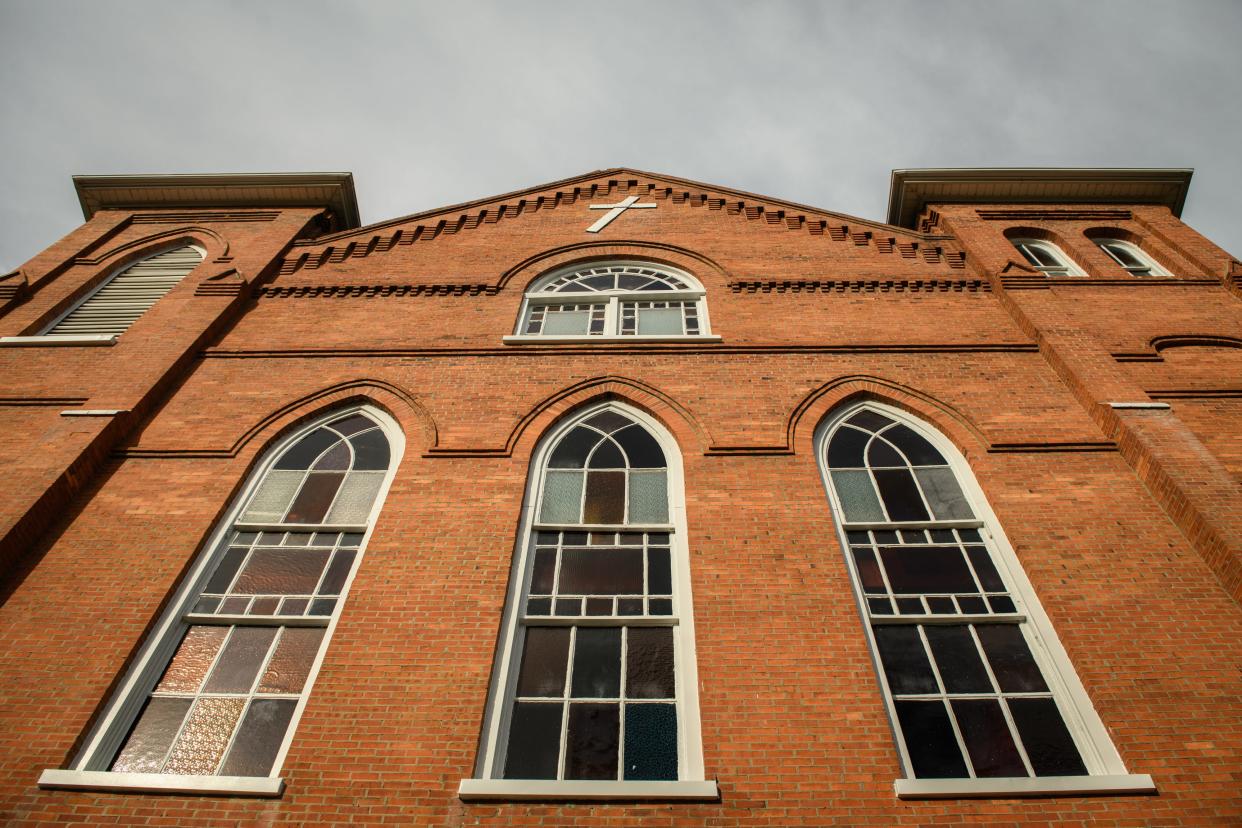
The role of the church serving as a sacred space and community space for the Black community dates to periods of slavery, Reconstruction and the civil rights era and continues to evolve.
Historically, it was a place where Black people could serve in leadership roles or Black children could receive an education.
Fayetteville’s own Black churches and “the religious community played an essential role during Fayetteville civil rights demonstrations in 1963, by offering protestors safe spaces to plan, organize, and receive mentoring support,” according to the North Carolina African American Heritage Commission.
Mt. Sinai Baptist Church and Evans Metropolitan AME Zion Church in Fayetteville were among the churches that supported and provided moral support and bail money for protesters.
In recent years, local church leaders have shown solidarity and shown up during protests over police killing Black individuals.
Fayetteville church leaders say local churches are still educating, developing leaders and reaching the community.
"Our job is to meet people where they are, help people where they are and help people find a way and purpose through Jesus," Dr. Christoppher Stackhouse, pastor of Lewis Chapel Missionary Baptist Church, said Monday.
Here’s a look at the history of some of those churches that remain sacred and community spaces.
Evans Metropolitan A.M.E Zion Church
Evans Metropolitan A.M.E Zion Church, at 301 N. Cool Spring St., is named after Henry Evans, a free Black cobbler who stopped in Fayetteville in the 1700s and “felt the call to preach to those enslaved in the area,” its site states.
The location where he and worshippers gathered was called "The African Meeting Place."
The church was chartered in 1801.
Evans became known as the "Father of Methodism" in Fayetteville and was buried in the mantle of the church when he died in 1810.
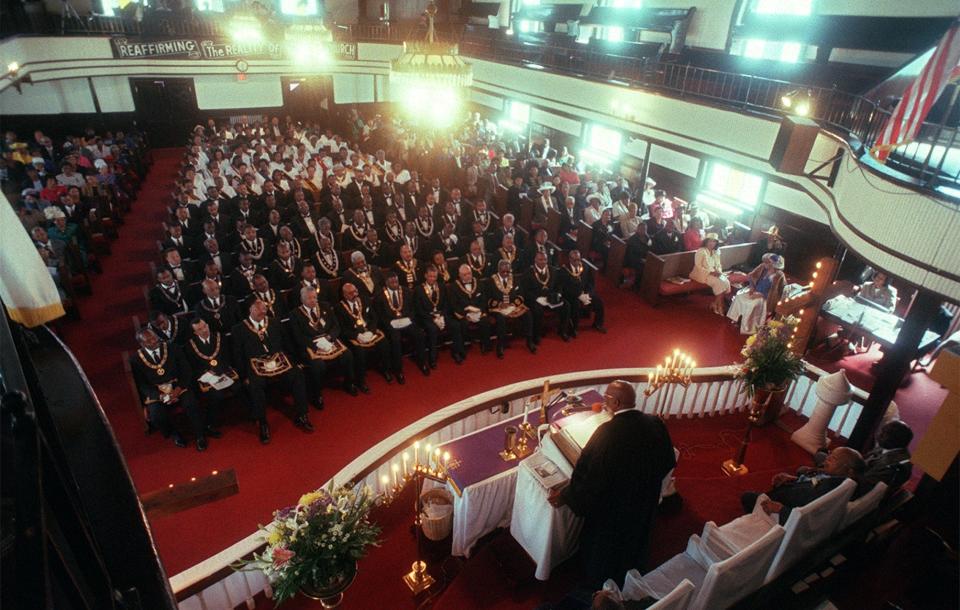
Dr. Annette C. Billie, an Evans member since 1968 and author of church history, told The Fayetteville Observer in 2018 that Evans risked his life to spread the faith, at one point having to swim through Cross Creek to escape a white mob.
Bishop James Walker Hood, one of the founders of Fayetteville State University, also served as pastor of the church in the 1800s.
According to the church's history, Evans Metropolitan served as a location for the education of African Americans during the Reconstruction Era and continued to play a role in the community by being a location for town hall meetings during the Civil Rights Movement in the 1960s.
In recent years, the church has stayed active in the community with a weekly feeding ministry.
Mt. Sinai Missionary Baptist Church
Mt. Sinai Missionary Baptist Church, 1217 Murchison Road, was organized July 23, 1922, by the late Dr. E.E. Smith, former president of Fayetteville State Teachers College.
The Rev. F. Chalmers was the church’s first pastor.
It was founded on land donated by Rachel Wood and her husband, Tom, who came from Robeson County and were originally members of First Baptist Church, then located on Franklin and Maxwell streets downtown, Louis Rollins, a church member who helped organize the church’s museum, told The Fayetteville Observer in October 2022.

The church’s pastor, Dr. Jamale Johnson, said in 2022 that E.E. Smith sold the land to the Woods family.
During the 1960s civil rights movement, Fayetteville State University students who participated in protest sit-ins at businesses in downtown Fayetteville met at Mt. Sinai when Johnson’s father, who is now the church’s emeritus pastor, the Rev. Aaron Johnson, was pastor.
“They wanted a new way to break the backbone of Jim Crow here in Fayetteville,” the senior Johnson said in 2022.
Rollins said Deacon Charlie B. McNeill was the longest-serving deacon board chairman, Sunday school superintendent, and was a carpenter at Fayetteville State University, which is across the street from the church.
McNeill would tell the students about the church, Rollins said.
The church remained civically engaged, with Aaron Johnson serving on the Fayetteville City Council and later being instrumental in convincing former President Ronald Reagan to establish Martin Luther King Day as a national holiday.
"Pastor emeritus Johnson believes in civic ministry by being involved in politics and social justice," Dr. Jamale Johnson said Wednesday. "Historically, members of our church have served in politics, city council, county commissioner, state representatives and try to bring about a better way of living for the citizens of Cumberland County."
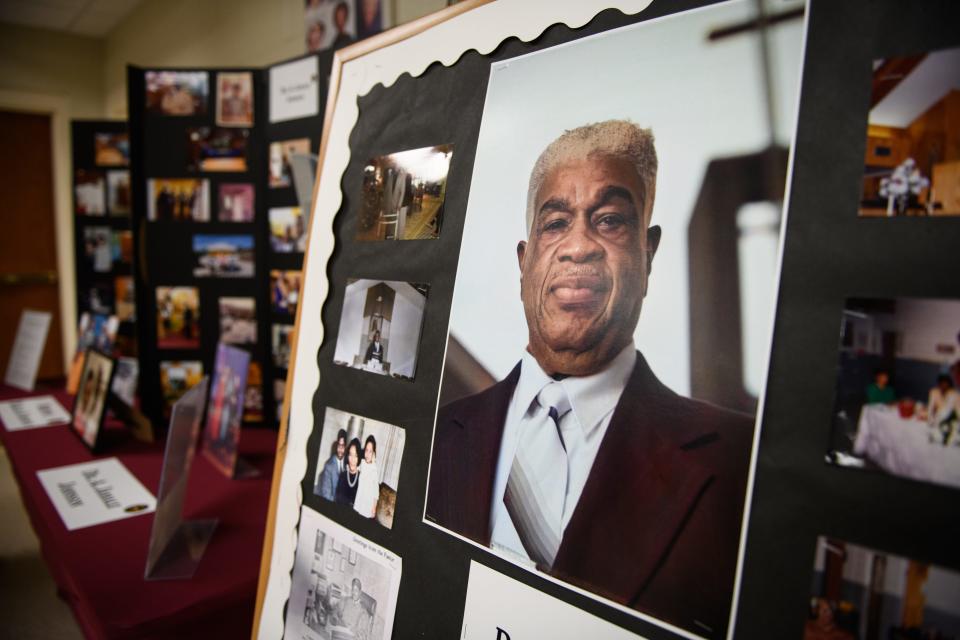
In recent years, the church has opened its doors to host events such as a Veteran’s Benefits Administration outreach or meetings about the future N.C. Civil War & Reconstruction Center.
Multiple services are offered to reach the community, Dr. Jamale Johnson said. Early morning Sunday services at 8:30 a.m. started during the COVID-19 pandemic, and an 11:30 a.m. service was added for those who aren't up as early and to give FSU students a time to worship, Johnson said.
The church's civic ministry serves Fayetteville and Cumberland County by addressing social needs and concerns, not just from the African American community but for all, he said.
"The church believes in touching all persons; that was a firm belief historically, and we still currently open our doors for the community," Johnson said.
The mission statement of the church is "making connections beyond the walls," he said.
The church’s core tenant is that one generation trains up the next and it believes in mission and outreach, according to its website.
The church also has an after-school program that reaches young people at the nearby Mt. Sinai Homes apartment complex the church manages and partners with Margaret Willis Elementary on Tuesdays for an afternoon tutorial program, Johnson said.
"As a church, we have a number of educators, and those educators have been able to connect with students on a weekly basis, and we have a number of volunteers that also make up the tutorial team," he said.
The church also has a Men of Promise mentoring program in partnership with Westarea Elementary to "teach young men a number of things like how to tie a tie, potential careers and how to serve as ambassadors to the school," Johnson said.
Lewis Chapel Missionary Baptist Church
Lewis Chapel Missionary Baptist Church, 5422 Raeford Road, was organized in 1911.
“It started out with very humble beginnings and was a family church, and like most churches, it strived to be a refuge for its members, a beacon of hope,” Stackhouse said. “I believe it started as a school and transitioned to be a church, so being active and present in the community and helping children has been at the forefront of our history.”
Former U.S. Rep. Larry Kissell told members of Congress in April 2011 that a trio of devout believers began meeting in a small one-room building that was used as a school for Black children, congressional records state.
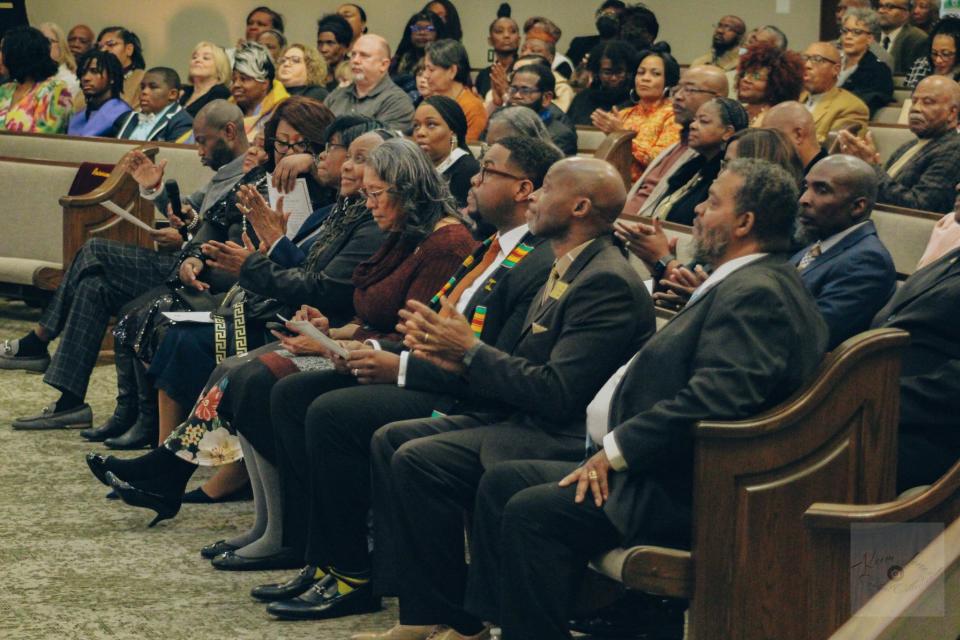
Those believers — Seavy Lewis, Henry McAllister and Andrew “Jack” Newkirk — received permission to start a Sunday school class, Kissell said.
The church is named after Lewis, who was one of the church’s first deacons along with McAllister. Newkirk was the first Sunday school superintendent along with Hattie McAllister, and the church’s first pastor was the Rev. William McGuire.
Under the church’s eighth pastor, the late Rev. John D. Fuller Sr., the church built a 47-unit senior citizens complex and a recreational/athletic complex, while responding to help people during natural disasters like hurricanes Floyd and Katrina and others, Kissell said.
Stackhouse said the church’s mission to reach people outside the church is exemplified in its support for nonprofits and homeless, street, food and clothing ministries.
“We engage people in the streets, buildings, communities and churches,” he said. “We try to be intentional and don’t wait for them to find us. We go looking for them."
The church also offers courses for fixing credit, expunging records, budgeting and provides therapy and counseling assistance programs, he said.
The church has mentors, programs for boys and girls, sponsors schools and still has its senior living facility, Stackhouse said.
“Everybody is looking for a place where they belong,” he said. “You belong here. You’re welcome here. Your family can grow and find a safe space here. We try to create spaces where people feel loved, appreciated and accepted by God.”
For existing members, Stackhouse said, the church encourages multi-generational families to stay active and honors its members who have legacies within the church.
“We invest in the younger generations as well, because we know that we can learn from each other,” he said. “We make spaces so that those who are older or younger feel heard and seen.”
Simon Temple A.M.E. Zion Church
Simon Temple A.M.E. Zion Church traces its roots back to before 1835, “when a faithful group of God-fearing Black people came together to worship God in their own way even before slavery was abolished,” according to its website.
By 1850, the group set up a shelter made from brush near Beaver Creek and called it Beaver Creek Chapel.
A piece of land was deeded to Beaver Creek Chapel in November 1873 and signed by African Methodist Episcopal Zion Church of America trustees.
In 1976, the church changed its name to Simon Temple, “in recognition of the Black African, Simon of Cyrene, who carried the cross of Jesus up to Calvary.”
The church counts Meals on Wheels, a Christian Development Center Preschool and before- and after-school programs among its ministries.
In 1994, it hosted the 114th session of the Central North Carolina Conference, and in 2020 U.S. Rep. James Clyburn, from South Carolina, stopped at the church to endorse current President Joe Biden in Biden's bid for the White House.
The church has hosted other political candidates in recent years and forums about race relations in the city.
Fayetteville's Black Spaces: Bonding, community and mentorship at the barbershop
Fayetteville's Black Spaces: Will we ever again see a place like the iconic Vick's?
Fayetteville's Black Spaces: The '70s and '80s clubs that brought big music stars to the city
St. Joseph’s Episcopal Church
St. Joseph’s Episcopal Church, 245 Person St., was organized with the help of the Rev. Joseph Caldwell Huske, and officially chartered in 1873, according to Fayetteville’s tourism organization, DistiNCtly Fayetteville.
According to church history, “many of the people who became founding members of St. Joseph's were involved in starting Howard School, which is now Fayetteville State University."
The St. Joseph's Parochial School was also one of the first formalized centers of education for people of African ancestry.
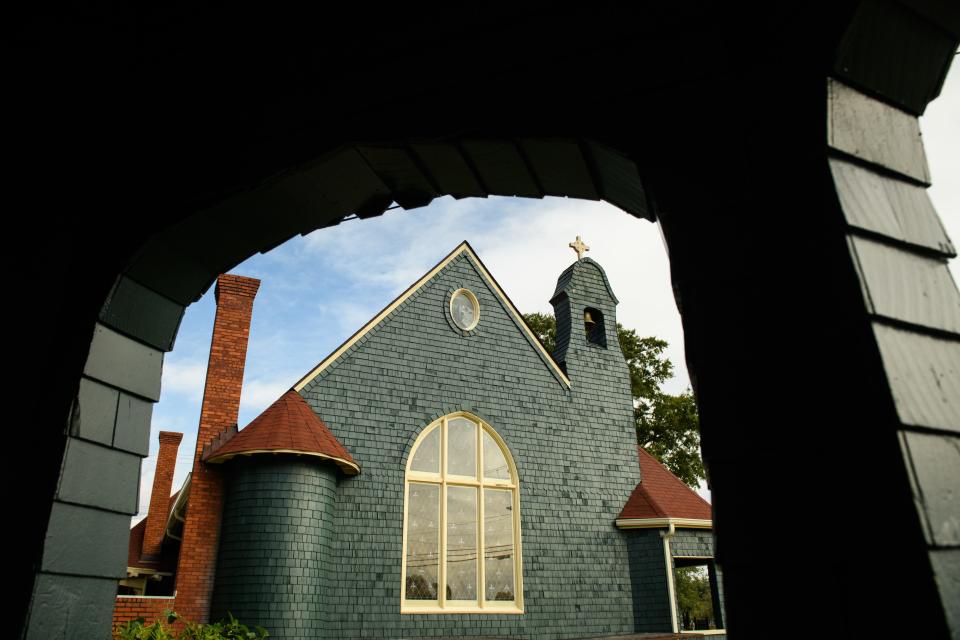
In recent years, it has made its facilities available for the NAACP, local schools and parks and recreation.
The church also provides breakfasts six days a week for those in need.
Staff writer Rachael Riley can be reached at rriley@fayobserver.com or 910-486-3528.
This article originally appeared on The Fayetteville Observer: How Fayetteville, NC churches continue to support Black community

